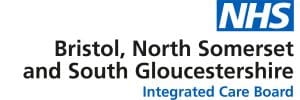Children’s health
Here you can find out what to expect after giving birth, what to do if your child is ill, and how to keep young children healthy.
Support from the health visiting team
Before you give birth, your midwife will inform your local health visiting team that you are expecting a baby.
The health visiting team gives support and information during your pregnancy and the early years of your child’s life, working with you to meet the needs of your child.
A health visitor will arrange to visit you at home when you are between 28 and 34 weeks pregnant.
After giving birth, you will be offered regular health and development reviews (health visitor checks) for your baby until they are around 2 years old. These are to support you and your baby, and make sure their development is on track.
You can read more about the health visiting team and when they will visit you on Sirona care & health’s website.
Registering your baby with a GP
You will need to register your baby with a GP as soon as possible after birth, using the pink card given to you when you registered your baby’s birth.
Your baby will have a medical check from your GP at six to eight weeks old.
Your GP will contact you when your child is due for their normal schedule of childhood immunisations.
Vaccinations
Vaccinations are one of the most effective ways to protect children against illness and infections such as measles, mumps and the flu. You can speak to your GP surgery to find out when your child is eligible for their immunisations.
Advice and support for baby and childhood illness
It is very common for babies and children to be ill and the best option could be to treat your sick child at home.
However, if you suspect it’s a more serious illness, it’s important to get medical attention as soon as possible.
There are lots of ways to get advice and help when your child is poorly:
- Care at home – common childhood illnesses such as coughs and colds can be treated at home so ensure you have a well-stocked medicine cabinet.
- Pharmacists provide confidential, expert advice and treatment for a range of common health conditions such as coughs, colds, sore throats, rashes, allergies and aches and pains. They can also help you decide if you need to see a GP, nurse or other healthcare professional.
- Minor injuries units are located in Yate and Clevedon. They can treat minor broken bones, minor burns, sprains, cuts and splinters and minor eye injuries.
- The Urgent treatment centre is located in Hengrove, South Bristol. It treats the same as the MIUs plus minor illnesses.
- Your General practice team can help if your child has an illness or health concern that won’t go away.
- Call NHS 111 if your child has an urgent medical problem and you are unsure what to do.
- Call 999 or go straight to A&E if your child has a life-threatening emergency such as loss of consciousness, breathing difficulties, severe bleeding, severe burns or scalds, or fits that are not stopping.
The NHS HANDi App
The NHS HANDi App is a free app, developed by children’s doctors, that gives expert advice on a range of children’s health conditions.
Find out about the HANDi AppThe NHS website
The NHS website gives lots of information and advice on health conditions, symptoms, medicines and how to get help. There is also guidance on whether or not to keep your child off school or nursery when they’re unwell.
The NHS Healthier Families website has lots of ideas on how to help you and your family eat better and move more.
Caring for children with coughs
If your child has a cough there is useful information and advice on the caring for children with coughs website.
Mental health and wellbeing
There is a wide range of care and support for children and young people’s mental health and wellbeing.
Find out more about children and young people's emotional health and wellbeing
